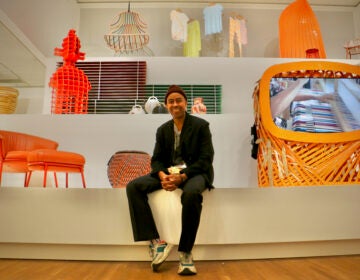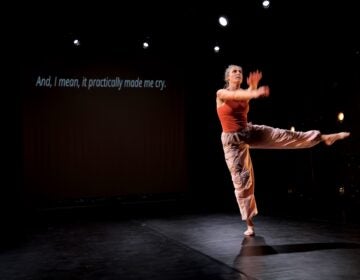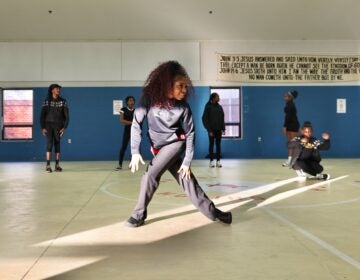A unique festival celebrates the rich history of tap dancing in Philadelphia
The festival is featuring master classes, live music jams, a community concert, a tap history talk, a tap history walk down Broad Street, and a closing concert at Solar Myth.
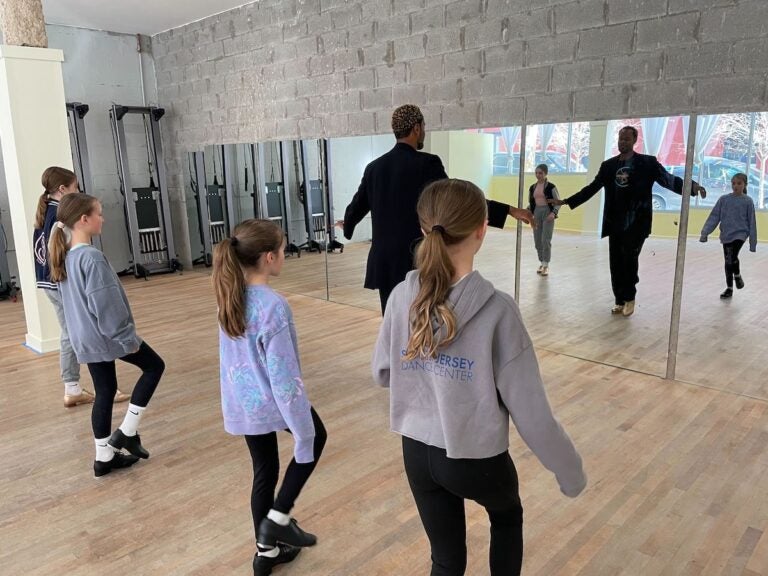
A special tap dance class for kids. (David Matthau/WHYY)
From Philly and the Pa. suburbs to South Jersey and Delaware, what would you like WHYY News to cover? Let us know!
A three-day tap-dancing festival in Philadelphia commemorates the art form’s rich history in the city, while bringing the tap community together.
Throughout the weekend, hoofers from the tri-state area immersed themselves in master classes, community concerts, and all things tap at the Brewerytown Tap Dance Festival. On Sunday, organizers are planning a tap history talk, a tap history walk down Broad Street, and a closing concert at Solar Myth.
“We hope to attract anyone and everyone who is interested in tap dance, whether or not you tap dance, perhaps you’re interested in the artform itself,” said Pamela Hetherington, artistic director of the Philadelphia Jazz Tap Ensemble, director of Sound Space Performing Arts, and festival co-founder. “Whether you’re a complete beginner or a tap dance wizard, we thrive in community, and we lift community up, so regardless of where you are in your tap dance journey you are welcomed into our circle.”
Conner Kelly, a member of the Philadelphia Jazz Tap Ensemble and festival organizer, said the intention is to build community.
“We really want to put the feelers out and see who’s in Philadelphia and who wants to take the time to create this community and rewrite the culture of Philadelphia and rejuvenate the things that already exist there,” he said.
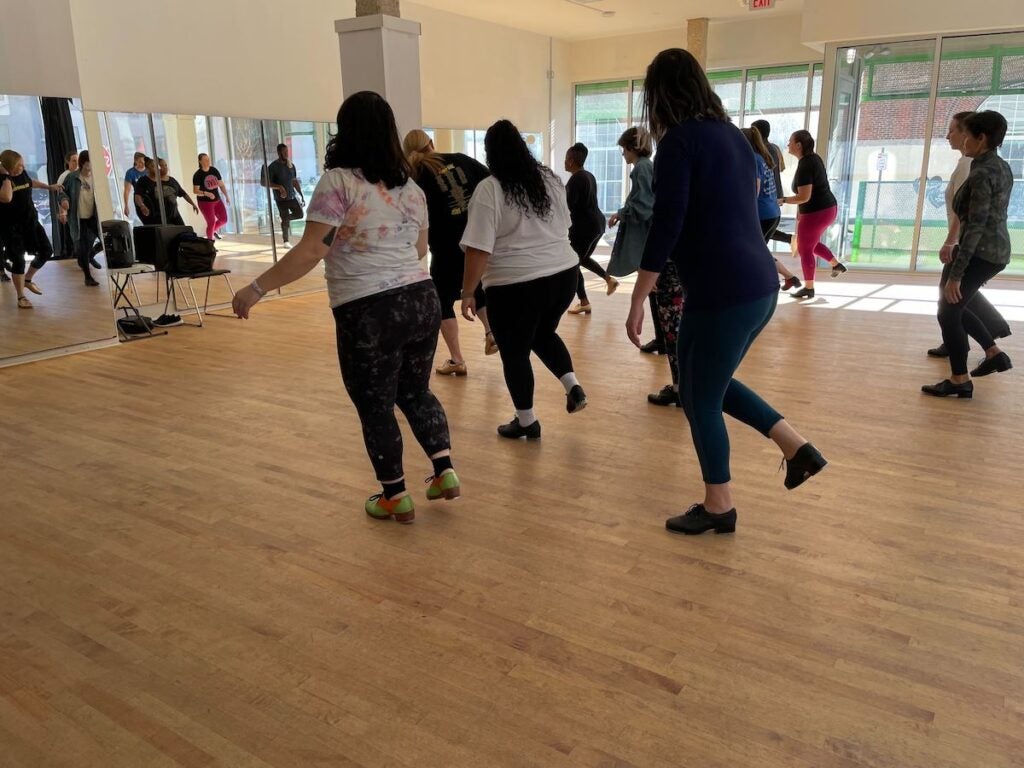
Robert F. Burden Jr., a renowned tap dancer, instructor, historian, and professor of dance practice at Indiana University in Bloomington, is one of the master artists teaching at the festival. Burden said tap dancing traces its roots to enslaved people from Africa, who were forbidden to play their drums.
“Those dances that they did told a story, and those that were from Africa understood that story through foot patterns,” he said.
He said initially the flat-footed style of dance was called bucking, and it was done as a form of resistance, almost like morse code.
“It said to them things that they needed to hear, or they needed to know who was around them,” he said.
Over time, tap dancing was handed down person to person in Black communities where people struggled to survive.
“This is the dance that they did to get release, this is the dance that they did to become anew, this is the dance that they did to be something other than oppressed,” Burden said.
Burden’s mentor, Philadelphia legendary tap dancer LaVaughn Robinson, learned his first tap steps from his mother. Robinson’s mother taught him the art in part to get him out of the kitchen so he would stop eating all of the food, Burden said. Robinson slowly began tapping on street corners and eventually became known as a tap master.
“And other tap dancers had to come through Philadelphia if they were going to make it somewhere, if they couldn’t get through Philadelphia they couldn’t get to New York, because most of the best tap dancers out there were in Philadelphia,” Burden said.
Heather Cornell, a tap dance professor at Hope College in Michigan, said tap dancing is unlike any dance form.
“It’s difficult because we don’t really fit, we don’t fit into a dance department because we’re not a dance form, we’re a dance and music form, so oftentimes there is not the understanding of where to put it in post-secondary [teaching],” she said.
“We keep wanting to put a lens on it that doesn’t exist,” Cornell said. “Tap dance exists in oral tradition passed on from human being to human being, that’s the roots of it, and it suffers when it’s constricted by Western approach to pedagogy.”
She said Philadelphia’s rich tap dance history in large measure grew out of segregated traveling shows.
“The quality of the work on the African American circuits was extremely high,” she said. “But these artists did not get the attention they deserved.”
Festival co-founder Hetherington said through the event, organizers want to spotlight that rich Philly tap history.
“We want to highlight that and inspire more people to learn about it and hopefully carry the legacy forward,” she said.
On Saturday, 12-year-old Mia was excited about joining the kids tap class.
“It’s just cool how you can make music with your feet, and how many steps are so cool to do,” she said.
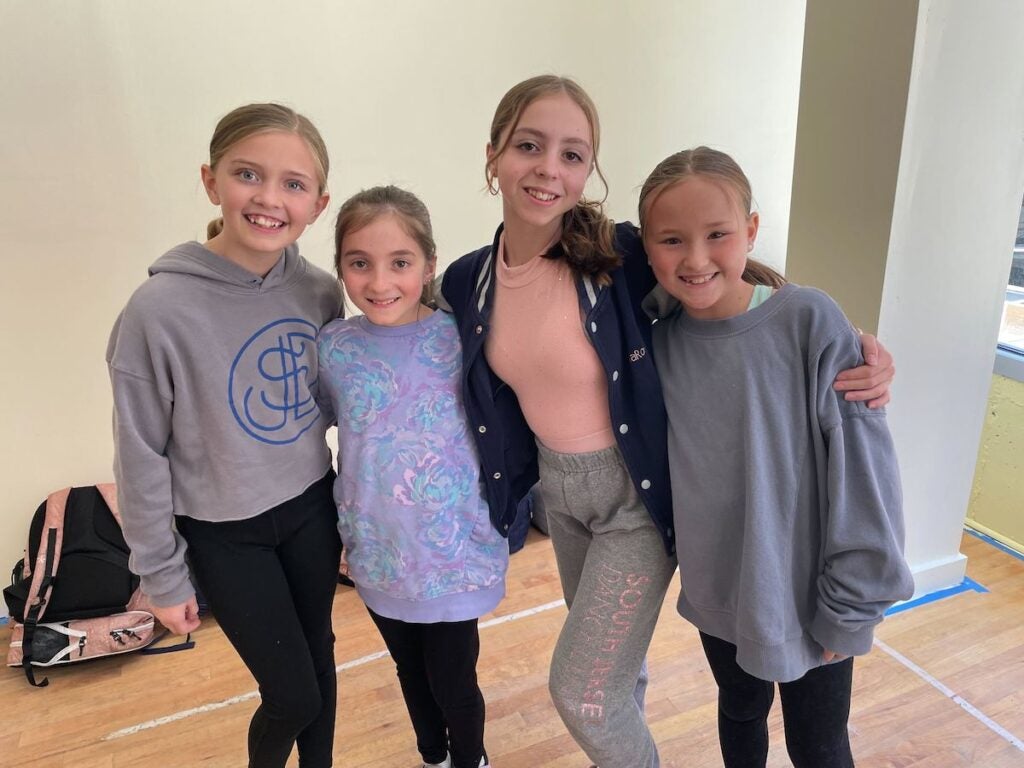
Linda Paseltiner, 57, of Devon, also stopped by to take classes. She said tap dancing makes her feel whole.
“I love the rhythm, I love the way it feels, I love listening to it,” she said. “In this style of dance your body is the instrument, it’s grounding, it’s centering.”
Cornell, the Michigan-based dance professor, said tap dancing is so special because it is not just dance.
“It’s music, dance, and theater in its best balance, and it brings the joy to a lot of suffering that we’ve had in our history, and it’s improvisational,” she said. “You see an artist in action, you see an artist in their truest moments, and you get to experience the totality of music, dance and theater in one human being.”
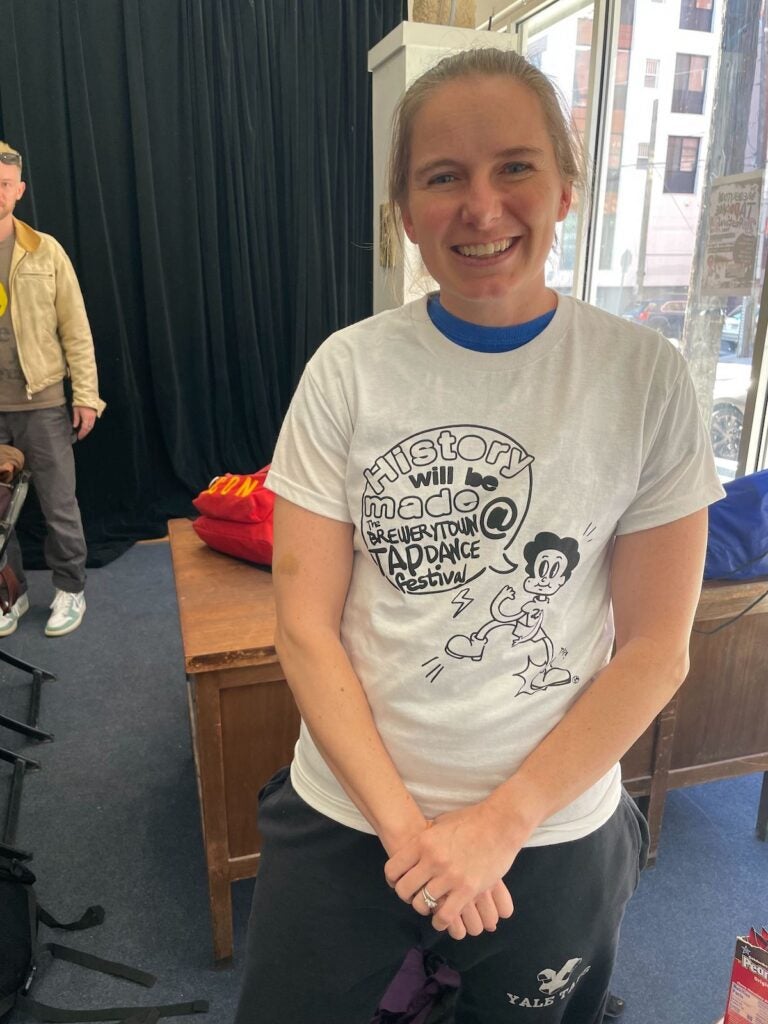
The Brewerytown Tap Dance Festival is presented by the Philadelphia Jazz Tap Ensemble.
More information is available online.

Get daily updates from WHYY News!
WHYY is your source for fact-based, in-depth journalism and information. As a nonprofit organization, we rely on financial support from readers like you. Please give today.



